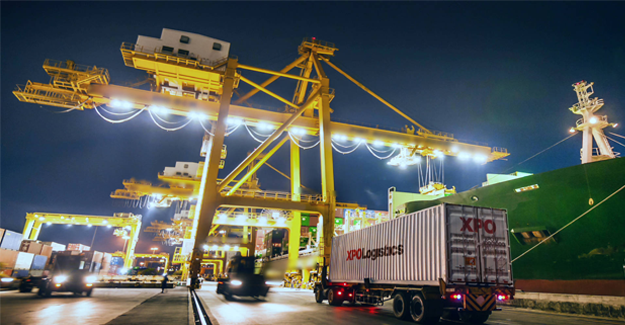
Improved Logistics Activity To Boost Textile Sector Sentiment
The last couple of years have been quite challenging for the domestic apparel and textile sector which in the post-GST regime is in a migration mode. This coupled with declining demand in the global market and increasing imports have aggravated the situation further. However, lately, there is visibility of green shoots towards improving infrastructure and other fiscal measures. Logistics is one such area which is all poised to witness a major turnaround post the implementation of GST. Things have already started showing results on the logistics front which can easily be considered as one of the crucial aspects of textiles and apparel value chain. Efficient logistics can go a long way in making India's product offering competitive at a time when as a country it is struggling to cope with challenges in exports, even as there is significant rise in imports.
"The Indian logistics sector, regarded as the backbone of a healthy economy, is highly fragmented and unorganised. As a result, the logistics spends in India currently amounts to 14-15% of GDP as compared to the 5-6% of the GDP spends in developed economies. However, now with GST, the sector is all set to transform forwards a more organised set-up. Moreover, with focused initiatives on manufacturing, like the Make in India campaign and thrust on digitization with the Digital India campaigns, the Indian logistics sector has slowly begun its disruptive transformation," says DK Nair, advisors to Clothing Manufacturers Association, who believes that any improvement on the logistics side, can have multiplier effect on the textile and clothing value chain keeping in mind its global footprints.
CBRE South Asia Pvt. Ltd, a leading global real estate consulting firm in its latest report 'India Industrial and Logistics Market View, H1 2018' says that the transaction activity in the logistics sector has continued to gain strength in the first half of 2018 as close to 10 million sq ft of space was leased across seven cities, an increase of about 45% as compared with H1 2017. Leasing activity was primarily driven by consolidation and expansion initiatives of firms belonging to sectors such as e-commerce, 3PL, retail, and engineering and manufacturing, which together accounted for more than 75% of the leasing reported during the review period.
"This is as a result of the policy reforms that the sector has undergone in the past two years (particularly the implementation of the GST), as more and more corporates in this sector consolidate their operations and locate closer to consumption hubs, thereby driving demand for larger warehouses," says the report.
The average size of space take-up increased from around 75,000 sq ft during H1 2017 to close to 90,000 sq ft during H1 2018. The overall demand for logistics and warehousing space was largely concentrated in Bangalore (25%), Delhi-NCR (21%) and Mumbai (20%). Chennai and Hyderabad also reported sizeable transaction activity and accounted for about 12% and 10% of the demand, respectively. Smaller cities such as Kolkata, Ahmedabad and Pune collectively held a 12% share.
"Going forward, we foresee the use of innovative technology solutions being the game-changer for the sector. As the sector witnesses the use of technology, coupled with the government's reform push, corporates across all sectors would be driven to opt for large, modern warehouses. The entry of various private equity firms and foreign players in the Indian logistics market would boost quality supply, hence propelling demand. Cities such as Mumbai, Pune and Chennai would remain major investment destinations, with Delhi-NCR and Bangalore also being on the investors' radar," says Anshuman Magazine, chairman, India and South East Asia, CBRE.
Commenting on the sector, Jasmine Singh, senior executive director, advisory & transaction services India, CBRE states, "We foresee leasing activity to remain upbeat over the next six months driven by 3PL and e-commerce sectors. Initiatives such as the creation of a separate Logistics Department is a reiteration of the government's focus on the development of the sector. In addition, initiatives such as Make in India and relaxation of FDI norms have further had a positive impact on investment sentiment in the country, leading to heightened business activity across the logistics sector."
As per the CBRE report, rentals for logistics space continued to appreciate along several micro markets across the major cities. The micro-markets of NH-6 in Kolkata and Bhiwandi in Mumbai has reported the highest appreciation, ranging between 15% and 24%. Meanwhile, other micro-markets such as NH-2 in Kolkata, the Northern Corridor in Hyderabad, the Southern Corridor in Bangalore, NH-1 in Delhi-NCR and Aslali in Ahmedabad has reported a rental appreciation of 3-5% on a half-yearly basis. The increase could be attributed to sustained occupier interest. Further, rentals across all other micro-markets in most of cities remained stable during the review period, except in Chennai's Western belt, which witnessed a marginal 1-3 per cent decline.
Textile Excellence
If you wish to Subscribe to Textile Excellence Print Edition, kindly fill in the below form and we shall get back to you with details.













